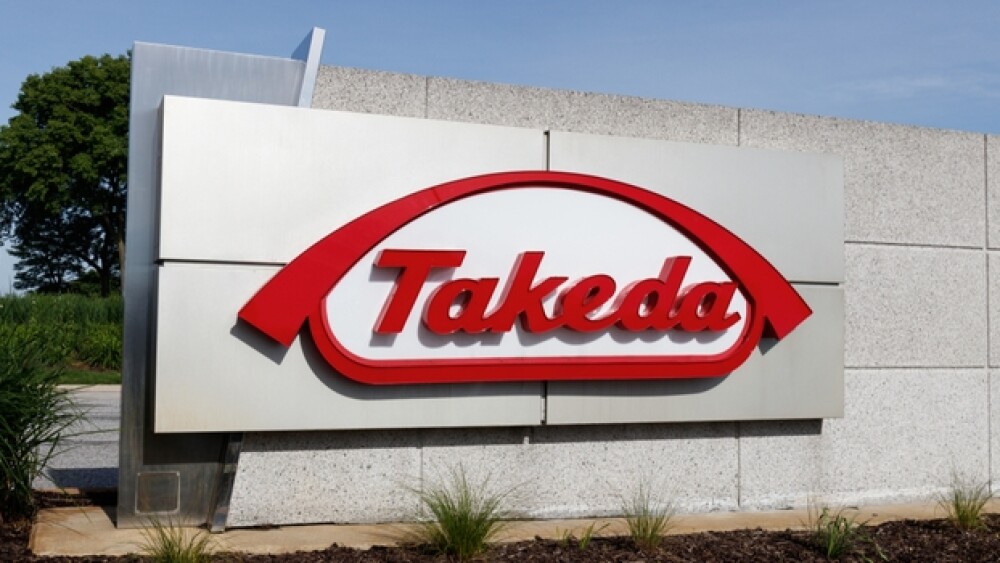If approved, Takeda said Maribavir would become the first and only treatment indicated for CMV infection in refractory patients.
Jonathan Weiss/Shutterstock
Takeda is one step closer to winning approval for its post-transplant cytomegalovirus (CMV) infection treatment, Maribavir. This morning, the company announced the U.S. Food and Drug Administration accepted its New Drug Application following positive Phase III data.
If approved, Japan’s Takeda said Maribavir would become the first and only treatment indicated for CMV infection in refractory patients, with or without assistance in solid organ transplant (SOT) or hematopoietic cell transplant (HCT) recipients.
The NDA is based on Phase III data from the SOLSTICE trial that showed Maribavir demonstrated superiority compared to conventional antiviral therapies in this patient population.
The study’s primary endpoint was defined as the proportion of patients who achieved confirmed CMV viremia clearance compared to IAT at the end of eight weeks. Data showed that more than 55.7% of transplant recipients with R/R CMV infection/disease treated with maribavir achieved confirmed CMV viremia clearance at Week 8 compared to 23.9% on conventional antiviral therapies.
Maribavir also met the key secondary endpoint in the study, which was defined as an achievement of CMV viremia clearance and symptom control at the end of eight weeks and maintained through Week 16.
Obi Umeh, vice president and Maribavir Global Program Leader at Takeda, said CMV is one of the most common viral infections experienced by transplant recipients. Current antiviral treatment options are limited.
“If approved, maribavir has the potential to change the treatment landscape for post-transplant CMV, and the acceptance of this regulatory application is an important milestone on maribavir’s path forward,” Umeh said in a statement.
The FDA has granted Maribavir Orphan Drug Designation for the treatment of clinically significant CMV viremia and disease in at-risk patients. The FDA has also granted maribavir Breakthrough Therapy Designation as a treatment for CMV infection and disease in transplant patients resistant or refractory to prior therapy.
Takeda has quietly been on a roll with its pipeline. Maribavir is Takeda’s fourth new molecular entity accepted for regulatory review in the past six months.
In April, the FDA assigned priority review to Takeda’s non-small cell lung cancer (NSCLC) treatment Mobocertinib (TAK-788). Mobocertinib is being developed as a treatment for EGFR Exon20 Insertion+ metastatic NSCLC in patients who have received prior platinum-based chemotherapy. Mobocertinib is the first oral therapy specifically designed to selectively target EGFR Exon20 insertion mutations, Takeda said. A Prescription Drug User Fee Act (PDUFA) action date has been set for Oct. 26.
In December, Takeda was also granted Priority Review for the investigational therapy budesonide oral suspension, TAK-721, which has been explicitly designed for eosinophilic esophagitis, a chronic inflammatory disease that can cause damage to the esophagus. If approved, TAK-721 will be the first FDA-approved treatment for chronic inflammatory disease.
In Europe, the company is seeking approval of its dengue vaccine candidate, TAK-003.In addition to Europe, the company intends to submit regulatory filings in Argentina, Brazil, Colombia, Indonesia, Malaysia, Mexico, Singapore, Sri Lanka and Thailand.
Takeda is counting on these new molecular entities and others within its pipeline to sustain its growth in the near future. Takeda’s Wave I pipeline includes12 unique New Molecular Entities (NMEs), representing potential best-in-class/first-in-class therapies.
During a call with investors at the end of 2020, Takeda Chief Executive Officer Christophe Weber said the Wave I pipeline is “reflective of the high bar we have set to focus solely on finding treatments, preventions and cures for targeted populations with high unmet medical needs, and bringing them to patients around the world.”





